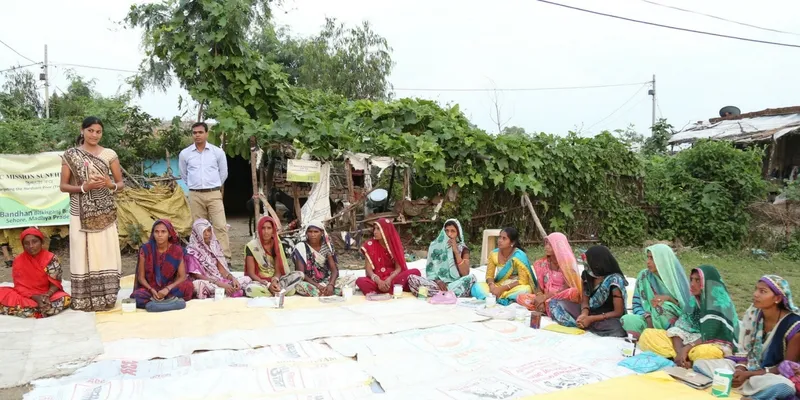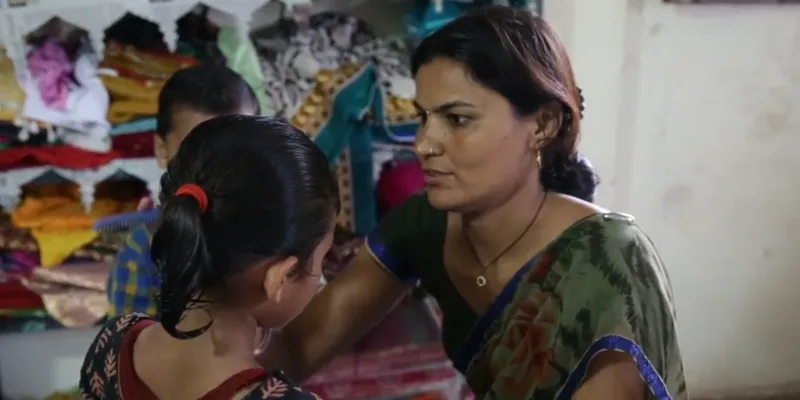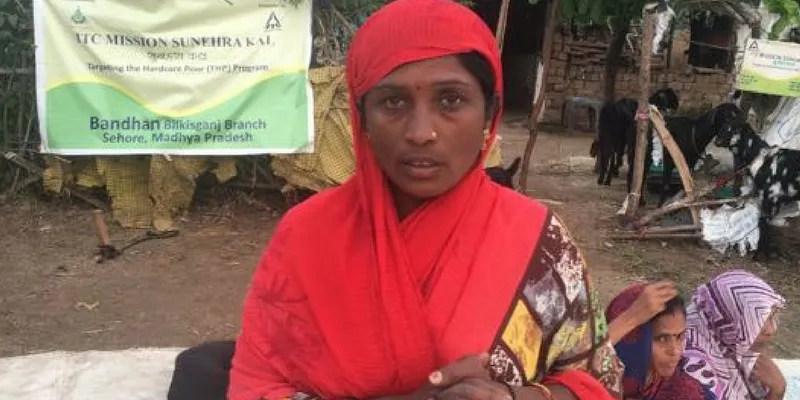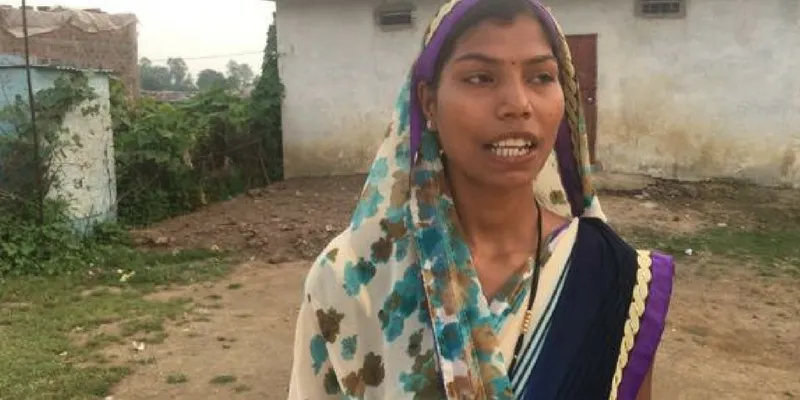With this programme, 13,000 rural women take over the reins of their families
Over 13,000 women have benefitted from ITC programme that imparts training to earn a livelihood and provide for the family.

Pushpa Parmar’s husband, a driver, met with a car accident four years ago. Since then, life took a turn for the family as Pushpa’s husband, the family’s breadwinner, was put in jail on charges of accidentally killing a person. With nowhere to go, Pushpa took to working as a daily wage labourer to fend for her three children.
“I started working as a daily wage worker, but used to get work once or twice in a week. The other, days I would be unemployed. As a daily-wage labourer, I would earn Rs 100 per day, which was way too meagre to feed a family of four,” says Pushpa, who hails from Bilkisganj village in Madhya Pradesh’s Sehore district.
Today, however, the family’s fortunes have again taken a turn, but this time, for the better. Pushpa runs a beauty parlour, and stitches clothes for women in the village. “Now, I earn around Rs 5000 to Rs 5500 per month, and sometime, during a good season, the earning goes up to Rs 7000. My children get a proper meal and attend school,” says Pushpa with a bright smile on her face.

Not only Pushpa, but over 13,000 women enrolled in Targeting Hardcore Poor (THP) programme have similar tales to tell. The two-year old programme, run by ITC Limited with Bandhan being the implementing partner , works for poverty alleviation and women empowerment through development activities. As part of the programme, women are brought into the fold of the socio-economic system to create a fulfilling life for themselves and their family.
How does it work
The programme starts with a Participatory Rural Appraisal (PRA) meeting, where members of rural households meet ITC and Bandhan officials. The families are mapped according to their economic status and the most needy are shortlisted.
Once the women are identified, a household survey takes place to verify the selected women. A round of 135 questions are put together to verify.
As ITC spokesperson highlights, “PRA is a democratic process through which the most deprived families and women are shortlisted who could benefit from the THP programme. Then, Bandhan does further filtering. On an average, five to six people are selected per village in a village, not more.”

Once the selection is done, the women are encouraged to pick a vocation under an Enterprise Development Programme. They are given options like managing a grocery shop, goat rearing, sewing, running beauty parlours, broom making and others.
“First, they surveyed our village and then I was shortlisted. Then I was asked about my choice of enterprise. I asked for a grocery shop. Then, for three days, I went to the office for training,” says Sarita Bai, also from Sehore.
During the training period, the women earn a small stipend. “A grant of Rs 7000 to Rs 9000 is given to them, not as cash, but in kind. Training on functional literacy is also given where women are taught to write their name, numbers, calculate expenditure statements etc,” says ITC spokesperson.
As times change
“They taught us how to write our names, also to write from 1 to 10. They also taught us to keep our surroundings clean, to plant trees in the free space near our house and helped build toilets,” says Yamuna Bai from Bilkisganj village.
With income, the habit of saving was also encouraged and the women were introduced to the banking system. The bank officials encourage the women to save Rs 10 every day in a piggy bank.

“Now I receive a sum Rs 200 from the office which I deposit in the bank. Earlier, I didn't know what was a bank, but now I know. Now I have money in the bank as well in my piggy bank,” says Yamuna, showing off her piggy bank.
Every training programme lasts almost 18 months, and programmes are on in Assam, West Bengal, Rajasthan, Madhya Pradesh, Telangana and Bihar. At the beginning of the programme, the average income of a household was Rs 1500 to Rs 3500 per month, and has now gone up to Rs 5000 to Rs 7000 per month.
“Once the objectives are achieved, the programme moves out from the village,” says an another, ITC Limited official. The programme has also been successfully implemented in Africa and Bangladesh.
“After using this scheme, people have started respecting me in the village. Now, they look at me and talk to me,” says Pushpa.
For Pushpa, and many like her, that is the biggest achievement.







